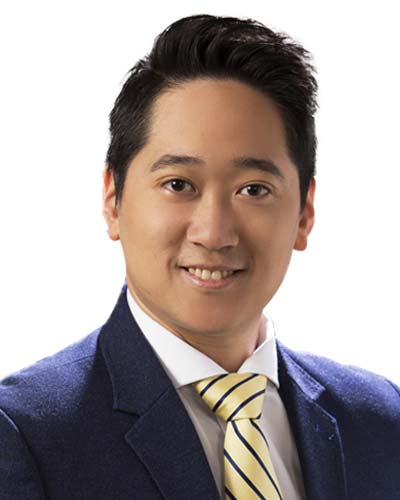As innovation advances modern enterprises, Asian jurisdictions are competing to offer businesses maximum patent protection to secure their intelligence capital
The current Taiwan Patent Act is the 2013 version. There have been several revisions over the years, but the structure of the examination system has remained largely the same. However, the Taiwan Intellectual Property Office (TIPO) will embrace enormous changes after a draft amendment enters the parliament. In the draft, 40 articles are revised, 29 added, and seven deleted, marking the largest change to the patent system since 2013.
Modelling the Patent Trial and Appeal Board and Trademark Trial and Appeal Board of the US Patent and Trademark Office, as well as counterpart offices in mainland China, South Korea, Japan and Germany, the TIPO plans to establish a new patent appeal and dispute review committee (this is the tentative name, as the official title in English has not yet been announced).
The committee will be primarily vested with jurisdiction over, among other matters, the succeeding reviews of the first decision of application examinations and patent invalidations, respectively.
COMMITTEE’S FUNCTION AND ORGANISATION
The “re-examination” after the first examination of a patent application will be abolished, and be replaced by “patent appeal” proceedings. In addition to the review of a rejected application, the patent appeal further deals with applications for patent term extension, post-grant amendments and other procedural decisions of the TIPO.

Associate Patent Attorney
Tsai Lee & Chen, Taipei
During a patent appeal proceeding, filing a divisional application remains possible. In addition to the pendency of the first examination, and three months from the allowance, the applicant is allowed to file for divisional applications during the pendency of the appeal, either before a rejection decision is issued or within three months if it is an allowance decision.
Dispute resolution, the other half of the committee’s main functions, will address cases of patent invalidity and patent term extension invalidity. The former refers to the cancellation of one or several patent claims, while the latter refers to the cancellation of an erroneous grant of a particular duration of extended patent term.
A panel of three to five ex officio members, who are patent examiners or officers of legal expertise with litigation experience, will review each case. Recusals of the panel members due to existing or potential conflicts of interest will be administered. For example, examiners who previously rejected the application in the first examination will not be allowed to participate as the case migrates to the phase of patent appeal.
Furthermore, the intervention of a third party is possible in a patent appeal or dispute case. A party having legal interests as to the conclusion of a case, such as a licensee or an assignee, may request or be ordered by the committee to participate in the proceedings of a case if necessary.
APPEAL, DISPUTE RESOLUTION
After a rejection, the applicant may request a patent appeal within two months following the decision. Before advancing to a panel review, there is a “preliminary review” step when there is a set of amended claims proposed alongside the appeal request. The preliminary review, which is similar to those of the Japan Patent Office, the Korean IP Office and the China National IP Administration, is devised for improved efficiency.
In a case where the applicant concedes to the examiner’s rejection reasons by further narrowing patent claims accordingly, it will be presided over by the same previous examiner. As the same examiner best understands the history of an application thoroughly, it is expected that a rejected application would be more quickly reversed as a result of a consensual compromise.
On the other hand, rejected applications that are appealed without claim amendments will enter panel reviews straight as per the default process.
As for invalidations, a major change will be the adoption of an adversarial system, under which the confronting opponents will no longer be the invalidating party versus the TIPO. Instead, an invalidation proceeding will be organised like a tribunal between the invalidating party and the patentee, with the TIPO’s committee serving as the neutral adjudicator.
Invalidations will require oral hearings by default, in contrast to examination by documents only as at present. A party’s absence from an oral debate without presenting justifiable excuses may lead to a decision based on unilateral arguments. When necessary, the panel may produce a case review schedule that contains issues on the facts, law, evidence and an agenda timeline. Moreover, the panel members are allowed to advise interim opinions before a decision is made.
In an invalidation case, the patentee is permitted to narrow the scope of patent right as a defensive measure in response to challenges. But the changes of a patent claim sometimes cause confusion as to which version is the latest to be reviewed against invalidity evidence. Under the draft, the review panel may first issue an interim decision that adjudicates the claim amendment. A decision on claim validity will be made later. After an interim decision, no more new, or combinations of, evidence or another claim amendment will be acceptable.
PATENT REMEDY IN THE COURT
Reduction of remedial levels is one of the major goals in the reform. For either patent appeal or dispute cases, the party may directly file a lawsuit to the Intellectual Property and Commercial Court (IPCC) on an unfavourable decision of the committee. An intermediate stage of administrative appeal in the Ministry of Economic Affairs will be removed. Eventually, the patent remedy system will consist of only two levels beyond the stage at the TIPO – the first at the IPCC, and the second at the Supreme Court.
Another major change is the governing procedural law in the court. The IPCC holds exclusive jurisdiction over patent appeal and dispute cases. To try these cases, the IPCC installs and operates the rules of civil procedures instead of administrative litigation procedures. In trials of patent appeal decisions, the TIPO becomes the defendant, while in trials of dispute decisions, the opposing party (usually the patentee) remains the defendant. In these cases, advocacy by a lawyer or patent attorney becomes compulsory.
PATENT OWNERSHIP DISPUTES
Currently a dispute as to who the real or lawful owner of a patent or application is can be resorted to either an invalidation proceeding by the TIPO or civil litigation in the court.
In several precedent cases, the courts criticised the role of an executive body to resolve the questions of ownership. The TIPO is the only specialised agency in the government that possesses expertise in IP-related matters. It has the best position to exercise its judgments on prosecutions, grants, or validity of patents.
However, speaking to the ownership of a granted patent or an invention, the TIPO as a government agency does not resemble a judicial court vested with investigatory powers. The TIPO is not the suitable organisation to resolve ownership. As per the draft, patent ownership disputes will in the future be resolved only by the court or through a settlement, arbitration or other alternative dispute resolution processes.
When a dispute of ownership is pending in the court, the parties may petition for provisional injunctions (for restoring non-monetary asset post legal action) or status-quo orders (for establishing a pro tem [for the time being] legal relationship). The injunctions and orders may further be submitted to the TIPO in order to suspend any relevant proceedings activated at the TIPO accordingly.
As an ownership dispute remains ongoing, the nominal owner on the record shall not abandon the patent until a court’s judgment or alternative dispute resolution decision is finalised.
SUNSET CLAUSE
After the new Patent Act enters into effect, both pending and finalised re-examination cases shall remain governed by the old law, along with the finalised cases of post-grant amendments, patent term extensions, invalidity, utility model rejections, and other procedural decisions. Non-finalised cases remanded back from the court or Ministry of Economic Affairs to the TIPO will resume in accordance with the old law.
Non-finalised cases other than those mentioned will be subject to the new law.

TSAI LEE & CHEN
11/F 148 Songjiang Rd
Taipei – 104492, Taiwan
Tel: +886 2 2571 0150
Email: info@tsailee.com.tw




























